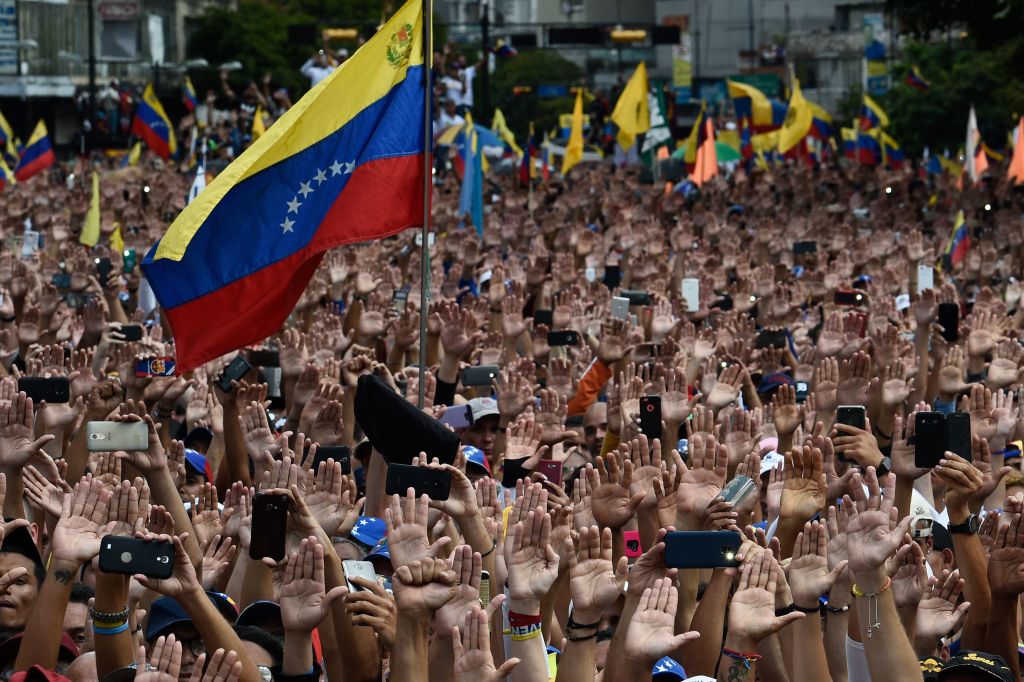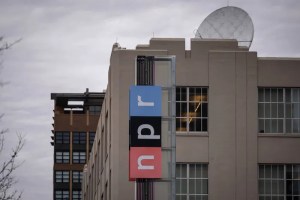So we really are back to the cold war. ‘We warn against this,’ Russia’s deputy foreign minister, Sergei Ryabkov, said yesterday. ‘We believe that this would be a catastrophic scenario that would shake the foundations of the development model we see in the Latin American region.’ The ‘this’ is, of course, American military intervention in Venezuela to install a pliant leader, Juan Guaidó, to replace the country’s current president, Nicolás Maduro, who won a bogus election two weeks ago. ‘We’re not considering anything, but all options are on the table,’ Trump said. ‘All options always, all options are on the table.’
The notion that Venezuela constitutes some kind of ‘development model’ in Latin America is of course risible. Moscow has been busily selling Maduro weaponry, while the regime loots what’s left of the country. The misbegotten socialist economic model that Venezuela followed under Hugo Chavez has made Greece look like a bastion of prosperity by contrast.
But the weirdest part of the the Venezuela saga has to be that the Trump administration is paying so much attention to it. The administration is bellowing about phony elections and the need to restore democracy to South America. Say what? For most of his tenure, President Trump has been yukking it up with the world’s dictators, while giving the cold shoulder to the likes of German chancellor Angela Merkel. If he can be palsy-walsy with Saudi Arabia’s MBS and, moreover, if he and Kim Jong-un ‘fell in love,’ as he put it a rally in Wheeling, W. Va. in September before his own credulous followers — are there any other kind? — then what’s the beef with Maduro? It surely isn’t that he fails to observe democratic niceties. There’s no question but that a foreign policy distraction from the government shutdown would be a welcome event for Trump. He’s already had his manhood questioned by House Speaker Nancy Pelosi; now she has forced Trump to capitulate over the State of the Union speech.
But the real reason for the hugger-mugger over Venezuela may be that Trump, as is his wont, only pays attention episodically to foreign policy. He is so besotted with his new affair with Kim that he’s essentially outsourced Venezuela policy to Sen. Marco Rubio and national security adviser John Bolton, the latter of whom called Venezuela part of a ‘troika of tyranny’ in November. According to NBC’s Andrea Mitchell, Rubio has a free hand in part because ‘all this is happening with a State Department decimated by vacancies, demoralized by an unprecedented politicization of the nonpartisan foreign service, and for the last month, crippled by the government shutdown.’ Writing in the National Interest, Curt Mills, too, reports that Rubio is key: ‘Former White House chief strategist Steve Bannon told me no one was more forceful in advocating for what would become the administration’s hard line.’ The language that Rubio and vice-president Mike Pence are using is unabashedly crusading. On Tuesday night, Pence tweeted, ‘We are with you. We stand with you, and we will stay with you until Democracy is restored and you reclaim your birthright of Libertad.’
The question confronting Trump is whether he’s actually prepared to launch an invasion on behalf of democracy. His problem is that he’s already upped the ante. If Maduro remains in power, he will serve as another sign of Trump’s fundamental weakness. But intervening militarily in Venezuela could be the equivalent of stepping on a landmine to cure a headache. As Benjamin Denison observes in the Washington Post, the history of such interventions is replete with grotesque failures, which is why Trump should proceed with caution: ‘Often, the local collaborators aren’t as capable as policymakers had hoped, and they have to build up local leaders and institutions — or the country will become dangerously unstable. Once an occupying power has to build reliable institutions, train leaders and political parties, and shore up civil society, there goes the dream of a short-lived armed intervention.’
It would be no small irony if Trump, who campaigned on the folly of regime change, became mired in a protracted guerrilla war in Venezuela.


















